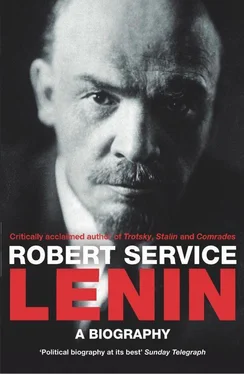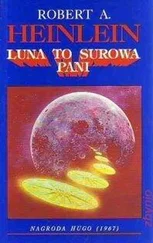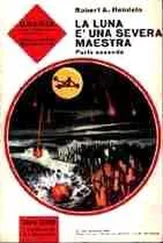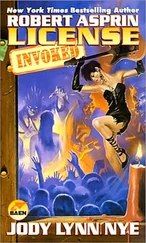WORKS: April Theses , 1, 2, 3, 4, 5, 6, 7, 8, 9, 10, 11; ‘Better Fewer, But Better’, 12; The Current Tasks of Soviet Power , 13; The Development of Capitalism in Russia , 14, 15, 16; Economic Studies and Articles , 17; ‘How We Should Reorganise Rabkrin’, 18; Imperialism as the Highest Stage of Capitalism , 19; ‘Letter to a Comrade about our Organisational Tasks’, 20, 21; ‘Letter to the Congress’, 22, 23; ‘Marxism and Insurrection’ (letter), 24; Materialism and Empiriocriticism , 25, 26; ‘New Economic Trends in Peasant Life’, 27; ‘On Compromises’, 28; ‘On Cooperation’, 29; On the Food Tax , 30, 31; ‘On the Question of the Nationalities or about “Autonomisation”’, 32; ‘On Slogans’, 33; One Step Forward, Two Steps Back , 34, 35; ‘Picture of the Provisional Revolutionary Government’, 36; Proletarian Revolution and Kautsky the Renegade , 37; The State and the Revolution , 38, 39, 40, 41, 42, 43, 44, 45, 46, 47; ‘The Tasks of Revolutionary Social-Democracy in the European War’, 48; ‘The Theory of Realisation’, 49; ‘Theses on the Question of a Separate and Annexationist Peace’, 50; Two Tactics of Russian Social-Democracy in the Democratic Revolution , 51, 52; What Is to Be Done? , 53, 54, 55, 56, 57, 58, 59, 60, 61, 62, 63, 64
Leningrad see St Petersburg
Lepeshinski, Panteleimon & Olga, 1
Lermontov, Mikhail, 1, 2, 3
Leshchenko, Dmitri, 1
Lewin, Moshe, 1
Liber, Mark, 1, 2
Liberation of Labour Group, 1
Liberation (organisation) see Union of Liberation
Liebknecht, Karl, 1, 2
Liebknecht, Wilhelm, 1
Liebman, Marcel, 1
Lindhagen, Karl, 1
Liquidators, 1
List, Friedrich, 1
Lithuania, 1, 2
London: L moves to, 1, 2; Third Party Congress in, 3
Longjumeau (France), 1
Lozgachëv, Georgi (‘Gora’), 1, 2, 3, 4
Luch (Menshevik newspaper), 1
Ludendorff, General Erich, 1
Lunacharski, Anatoli, 1, 2, 3, 4
Luxemburg, Rosa, 1, 2, 3, 4, 5
Lvov, Prince Georgi, 1, 2, 3
Lyubimov, A.I., 1, 2
Machiavelli, Niccolò, 1, 2,3
Main Political Administration (GPU): established, 1, 2
Malia, Martin, 1
Malinovski, Roman, 1, 2, 3, 4, 5, 6, 7, 8
Martov, Yuli: activities in St Petersburg, 1; friendship with L, 2, 3, 4, 5; Jewish background, 6, 7, 8, 9; detained, 10; exiled to Siberia, 11, 12; on board of Iskra , 13, 14, 15; and L’s writing of What Is to Be Done? , 16; leadership qualities, 17; in London, 18; moves Iskra to Geneva, 19; dispute with L at Second Party Congress, 20, 21; forms Menshevik party, 22, 23; attacks L, 24; L repudiates, 25, 26, 27; declines to attend Third Party Congress, 28; and Bolsheviks in Duma elections, 29; self-questioning, 30; approached by Bolshevik Centre, 31; and First World War, 32, 33; disbelieves workers’ revolution, 34; and international socialism, 35; and L’s return to Russia after revolution, 36; criticises L’s interpretation of Marx, 37; calls for socialist administration, 38; differences with L, 39
Marx, Karl: L’s interpretation of, 1, 2, 3, 4, 5, 6, 7, 8; influence on L, 9, 10, 11, 12, 13, 14, 15, 16, 17, 18, 19, 20; appeal to Russian revolutionaries, 21; Chernyshevski reads, 22; attitude to peasants, 23, 24; on agrarian Russia, 25; Plekhanov’s interpretation of, 26; and Russian economic trends, 27; Bernstein’s revisionism, 28; Kautsky defends, 29; L cites, 30; and revolution, 31; influenced by Enlightenment, 32; in L’s The State and Revolution , 33, 34; views on historical development, 35; L displays portrait of, 36; advocates workers’ control of factories, 37; work ethic, 38; on socialism in peasant society, 39; L promoted as successor to, 40; Capital , 41, 42, 43, 44, 45, 46, 47; The Poverty of Philosophy , 48; Theses on Feuerbach , 49
Marxism: as prominent ideology in Russian Empire, 1, 2; Russian revolutionaries embrace, 3; L’s interest in and understanding of, 4, 5, 6, 7, 8; and class struggle, 9; study circles, 10; workers in, 11, 12; L writes on, 13; in Russia, 14; and L’s proposal for party, 15; and Bolshevik-Menshevik split, 16; Russian leaders repressed, 17; predicts stages of revolution, 18; and historical development, 19; on industrial levels as prerequisite for socialist state, 20
Marxism–Leninism, 1, 2, 3, 4
Marxism–Leninism–Stalinism, 1
Maslov, Pëtr, 1, 2
Mayakovski, Vladimir, 1
Mdivani, P.G., 1, 2, 3
Medvedev, Roy, 1
Mehring, Franz, 1, 2
Mendeleev, Dmitri Ivanovich, 1, 2
Mensheviks: formed, 1, 2; L attacks, 3, 4, 5, 6, 7, 8, 9, 10, 11, 12, 13, 14, 15; attend Third Party Congress, 16; on dictatorship of proletariat, 17; L wishes reunification with, 18; at 4th Party Congress, 19; doctrines, 20; defeated at 5th Party Congress, 21; criticise L for megalomania, 22; minimal representation at Prague Conference, 23; legal status, 24; in Fourth Duma, 25; form Petrograd Soviet, 26; and February 1917 revolution, 27; support Provisional Government, 28, 29, 30, 31, 32; meet L on 1917 return to Russia, 33; denied wish for unified party, 34; as separate party, 35; Trotski leaves, 36; apprehension over Bolshevik demonstration, 37; decline, 38; and Bolshevik plans for armed demonstration, 39; strength in soviets, 40; and October Revolution, 41; and Second All-Russia Congress of Soviets, 42; land policy, 43; demand broader socialist coalition, 44; L refuses compromise with, 45; and suppression of Constituent Assembly, 46; repressed, 47, 48, 49, 50; support grain-trade monopoly, 51; and L’s socialism, 52; advocate NEP, 53; posthumous accounts of L, 54; see also Russian Social-Democratic Labour Party
Meshcherski, Vladimir P., 1, 2
Meshcheryakov, Nikolai, 1
Meyer, Alfred, 1
Michels, Robert, 1
Mickiewicz, Sergei, 1
Mikhail Alexandrovich, Grand Duke, 1
Mikhailovski, Nikolai, 1, 2
Military Opposition, 1
Military-Revolutionary Committee (of Petrograd Soviet), 1, 2, 3, 4, 5
Mill, John Stuart, 1
Milyukov, Pavel, 1, 2, 3, 4, 5, 6>, 7, 8
Milyutin, Vladimir, 1
Minsk, 1
Mints, V.M., 1
Minusinsk district (Siberia), 1, 2
Mirbach, Wilhelm, Count von: assassinated, 1, 2
Mitchell, Isaac H., 1
Modenovo, 1
Modrácêk, Franz, 1
Molotov, Vyacheslav M., 1, 2, 3, 4
Morgari, Odino, 1, 2
Morozov, Savva, 1
Mosca, Gaetano, 1
Moscow: Ulyanovs move to, 1; L in, 2; December 1905 rising, 3; Soviet, 4; L moves government to, 5; character, 6; 1921 strikes in, 7
Moscow Province Party Conference (1920), 1
Mukden, Battle of (1905), 1
Munich, 1, 2
Mussolini, Benito, 1
Myshkin, Ippolit, 1, 2
Nadezhdin, L., 1
Napoleon I (Bonaparte), Emperor of France, 1
narodniki (agrarian socialists), 1, 2; see also agrarian socialism
‘national question’, 1, 2, 3, 4
nationalisation, 1, 2
Nazaretyan, Amayak, 1
Nazareva, Gertruda, 1
Nechaev, Sergei, 1, 2
Nefedev, Nikolai, 1, 2
Neivola (Finland), 1, 2
NEP see New Economic Policy
Nevzorova, Zinaida, 1
New Economic Policy (NEP): L introduces and justifies (1921), 1, 2, 3, 4, 5, 6, 7; denounced at 10th Party Conference, 8; in operation, 9, 10; and continuance of terror, 11; and private foreign trade, 12
Nicholas II, Emperor of Russia: attacked by revolutionary parties, 1; unpopularity, 2; and killing of petitioners (1905), 3; October Manifesto of reforms (1905), 4, 5; disperses Duma and calls new elections, 6; and Basic Law, 7; L wishes for overthrow, 8; in First World War, 9, 10; and February 1917 revolution, 11; prorogues Fourth State Duma, 12; and Provisional Government, 13; secret treaties with Allies, 14; assassinated, 15
Читать дальше












